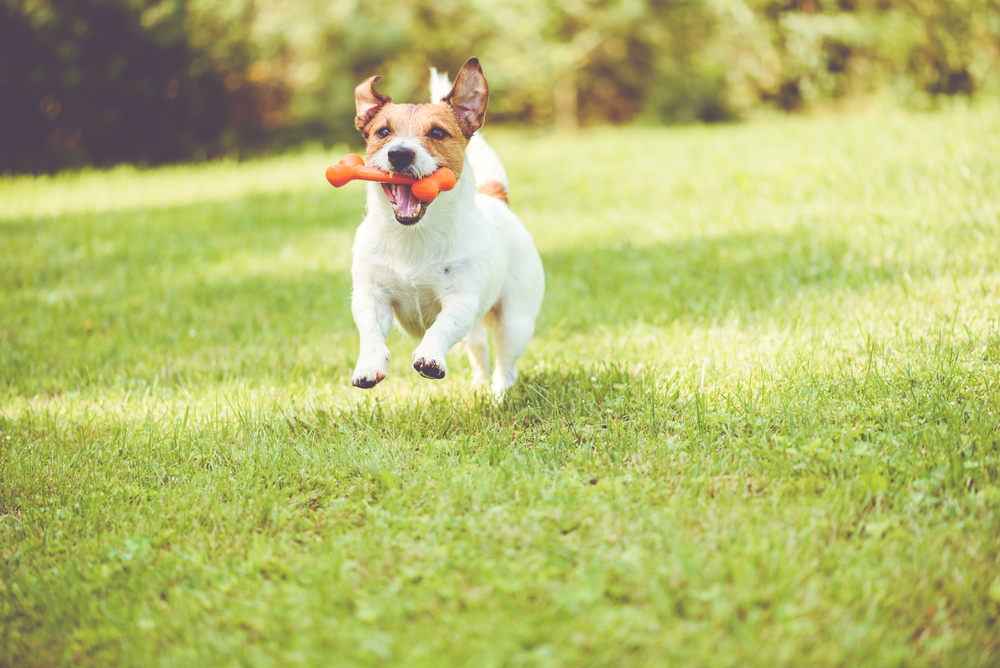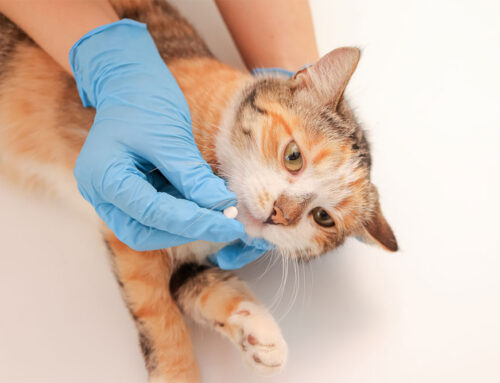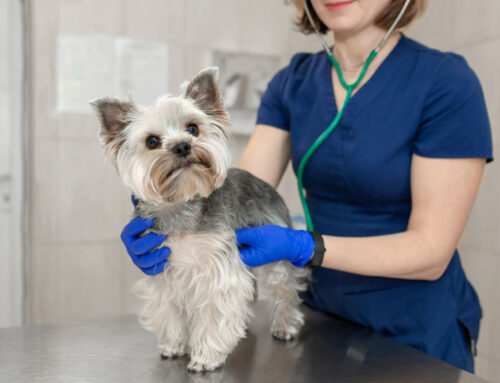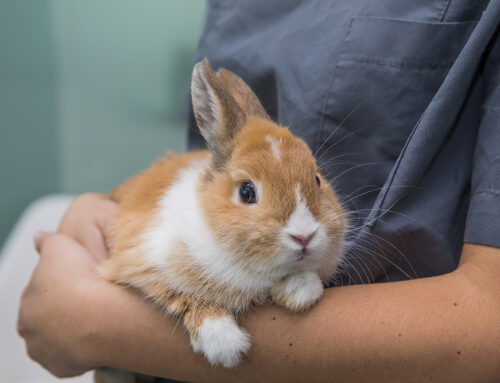Giardia is a microscopic parasite that causes large-scale discomfort for infected dogs, and can also affect humans. The Parker Center Animal Clinic team offers this guide for you to learn six giardia facts that every dog owner should know.
#1: Giardia is a protozoan parasite that causes intestinal infection in pets and people
Giardia are single-celled organisms (i.e., protozoa) that are transmitted through contaminated water, soil, feces, or direct contact with infective cysts. Giardiasis (i.e., giardia infection) can affect all mammals, including domestic dogs and cats as well as humans.
Giardia is a zoonotic parasite (i.e., transmissible from infected pets to people), and diligent hygiene is therefore necessary to prevent infection while treating or caring for a giardia-positive pet.
#2: Giardia causes gastrointestinal illness signs in dogs
In a dog who is infected with giardia, the cysts (i.e., a giardia protozoa encased in a protective shell) migrate through the digestive tract to the intestines and become trophozoites (i.e., shell-less organisms) that attach and feed on the dog’s intestinal lining. Once attached, the giardia robs the dog’s nutrition and hydration by damaging the intestinal brush border, which is a tissue layer filled with finger-like projections that aid in nutrient absorption. Brush border destruction causes giardiasis signs, including:
- Chronic diarrhea, often containing mucus
- Watery, loose, or foul-smelling stool
- Abdominal discomfort
- Weight loss
Because they are small, infected puppies can suffer from serious illness and dehydration, so puppies with persistent or intermittent diarrhea always merit a veterinary examination. Adult pets may be asymptomatic (i.e., show no signs), but an annual intestinal parasite screening test (i.e., fecal test) can confirm a diagnosis.
#3: Dogs can be exposed to giardia through contaminated water, soil, or feces
Giardia cysts enter the environment through infected animal feces. Unlike other intestinal parasite eggs, giardia cysts are immediately infective, increasing their threat to susceptible pets. Cysts are relatively hardy and can survive several weeks or months in ideal conditions and may be absorbed into the ground or nearby water. Exposure and infection occur after direct contact with infected material, when dogs:
- Drink contaminated water (e.g., puddles, creeks, streams)
- Ingest infective feces
- Play or roll in contaminated soil
- Directly contact or ingest an infected host (e.g., wildlife)
Dog owners are most commonly exposed by eating or touching their face after handling infected stool and failing to maintain strict handwashing protocols.
#4: Giardia diagnosis can be challenging for veterinarians
Dogs with giardiasis can range from visibly sick to asymptomatic, so the condition can be difficult to diagnose. Your veterinarian may recommend testing according to your dog’s clinical signs (e.g., diarrhea, weight loss) to determine a diagnosis, or they may detect your dog’s hidden (i.e., occult) infection at their annual wellness physical exam.
Giardia diagnosis can be challenging for two reasons. First, infective cysts are only shed intermittently, and may not be active when your pet is tested. Second, several serious malabsorption disorders, such as exocrine pancreatic insufficiency [EPI] can mirror giardia signs.
Tests your veterinarian may perform to confirm a giardiasis diagnosis include:
- Intestinal parasite screening (i.e., fecal test) — Your pet’s stool is viewed microscopically to identify visible cysts.
- Antigen test — Your dog’s fecal sample is screened for specific markers that indicate giardia infection.
- Blood work — To check your pet’s overall health, or if a serious underlying condition is suspected, your veterinarian may recommend diagnostic blood work, including a complete blood count (CBC) and chemistry profile.
#5 Giardia treatment in dogs involves medication and environmental management
Fortunately for dogs and their owners, giardia treatment is safe and relatively simple. However, dog owners must take necessary precautions against reinfection or zoonotic transmission, while the infected dog is treated. This requires a multi-pronged approach that includes:
- Medication — Your veterinarian will prescribe daily medication for 5 to 10 days to address your dog’s clinical signs, eliminate the giardia infection, and reduce cyst shedding.
- Environmental control — Prompt waste removal can prevent exposure to other animals and minimize reinfection risk. If possible, eliminate potential contamination sites, such as wildlife feeders and standing water, or install barriers to ensure such areas are inaccessible to your dog.
- Hygiene — Bathe your dog after treatment to prevent reinfection through self-grooming.
- Hand washing — Wash your hands thoroughly after handling dog waste and supplies, or interacting with your dog. Avoid touching your face while caring for your dog.
- Follow-up care — Your veterinarian will reevaluate your dog post-treatment to ensure they are parasite-free.
When all these precautions are followed, affected dogs generally fully recover from giardia infection. However, inconsistent hygiene practices, incomplete treatment, or repeated environmental exposure can lead to reinfection.
#6: You can minimize your dog’s giardia risk

Giardia is not completely preventable, but the following precautions can minimize your dog’s exposure and infection risk:
- Preventive care — Annual exams by the Parker Center Animal Clinic team are the best way to ensure your dog stays in peak health and enables early detection of hidden illnesses or infections.
- Routine fecal testing — Your dog’s stool should be tested annually for giardia and intestinal worms, such as roundworms, hookworms, and whipworms.
- Environmental management — Exercise your dog in clean grass, avoid areas frequented by wildlife or unfamiliar dogs, and remove feces immediately to reduce infective cysts.
If your dog is experiencing intermittent diarrhea or other unexplained intestinal issues, they may be suffering from giardiasis. Contact our American Animal Hospital Association (AAHA)-accredited Parker Center Animal Clinic to schedule your dog’s examination and intestinal parasite screening.6 Must-Know Facts About Giardia in Dogs






